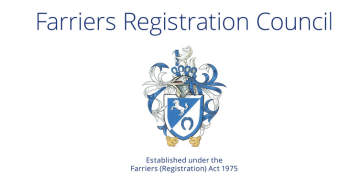From my home in Scotland, two changes to the English apprenticeship system announced last week caught my eye: the scrapping of functional skills for adult apprentices and the reduction of the minimum duration from twelve to eight months.
Both changes are sensible and certainly get my vote. They both promote greater flexibility in the delivery of apprenticeships and we need more flexibility to meet the needs of the diverse audience that apprenticeships serve. A one size fits all approach simply doesn’t work.
Mandatory minimum duration
In Scotland, we’ve never had a mandatory minimum duration for completing an apprenticeship. We ask developers to provide an `average duration’ as a guide and this helps employers and apprentices to better understand the size and scope of the programme. But it’s just a guide.
We think it’s important that apprentices work at their own pace. Some will progress faster than others. We don’t think there’s any merit in slowing down an apprentices’ progress simply to meet an artificial timescale.
Apprenticeships come in different shapes and sizes, so inevitably some will take longer to complete than others. In traditional sectors such as engineering and construction, a four-year programme model works well and meets the needs of employers.
In other sectors such as hospitality and retail, more intensive assessment over shorter periods is the best delivery model for many employers so apprenticeships can be delivered and completed more quickly without any reduction in quality.
And we shouldn’t forget that many candidates have already acquired significant skills and knowledge before they start their apprenticeship and this enables them to progress more quickly.
Whilst the current rules in Scotland allow for very short delivery and completion times (as little as three to four months), in practice these are few and far between.
The Scottish system acknowledges the complexity of the apprenticeship system and encourages each sector to determine the appropriate duration for its apprenticeship programmes. It has worked well. There have been no horror stories.
It’s good to see England showing more flexibility with this. Hopefully this will be the first step in the eventual scrapping of mandatory minimum durations for all apprenticeship programmes.
Functional skills
The removal of functional skills from adult apprenticeships is also welcome news.
We don’t have functional skills in Scotland. Instead, we have Core Skills (numeracy, information and communication technology, communication, working with others and problem solving); they are mandatory and assessed in the workplace alongside the main vocational qualification.
In the early days of Scottish apprenticeships (the mid-1990s) there was a degree of enthusiasm for core skills.
In creating apprenticeship frameworks, many employers set core skills at high levels. The rationale was that an apprenticeship should be developmental in nature and should provide apprentices with skills and knowledge above and beyond those required in the current job role.
However, employers quickly realised that the achievement of core skills at these higher levels required apprentices to undertake activities which were not part of their current job role, so additional activities needed to be put in place for assessment to be carried out. This could be costly and employers began to question the original rationale. Gradually, core skills levels fell into line with workplace activity.
Since then, the enthusiasm for core skills has dampened.
Many employers agree they are a good thing and are important. But there is a belief they should be included as a mandatory part of the school curriculum; school-leavers should start an apprenticeship with a clutch of core skills already achieved.
And there’s the cost. There is no additional funding in Scotland for the delivery of core skills so employers feel they are paying for something that schools should be providing.
There’s no doubt that core skills and functional skills can bring valuable additional learning to apprenticeships and support the development of future careers.
But Scottish evidence suggests that employer appetite for these skills in frameworks is low; presumably, employers in England take a similar view.
















Your thoughts